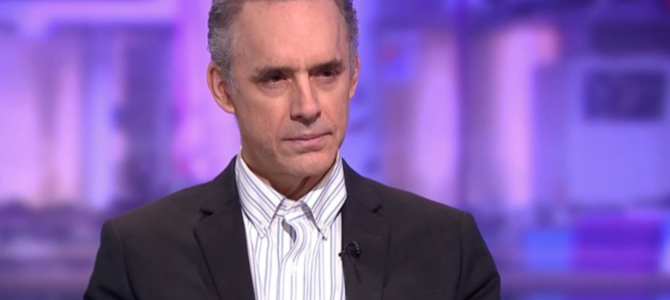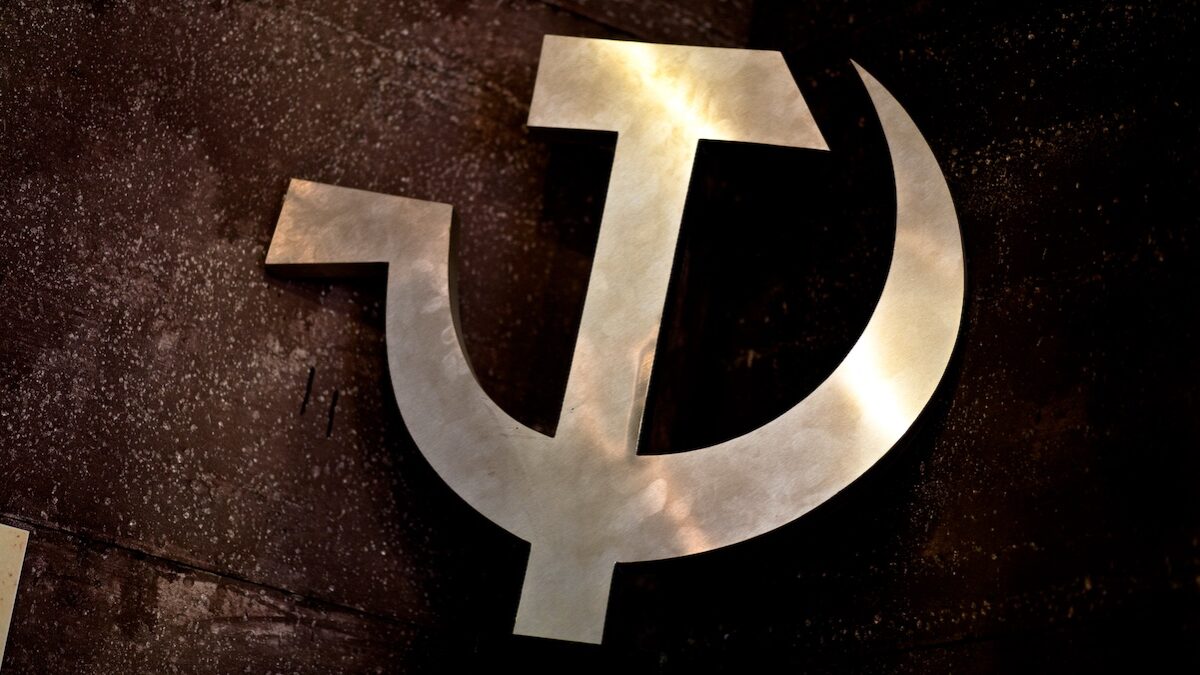
Jordan Peterson is back. The Canadian professor of psychology who is one of the world’s leading intellectuals has recovered from a coma that resulted from his severe dependence on sedatives, which nearly killed him. His new book “Beyond Order: 12 More Rules for Life” has just been released, and he seems set to resume a public career that made him famous and wealthy. The left has a not-so-subtle message for Peterson upon his resurrection: Watch your back.
Last year, an article called “What Happened to Jordan Peterson?” appeared in the New Republic. Were it not for an article in the Atlantic this week, it would barely be worth mentioning in its substance. In it, the author attempts to explain how Peterson wound up in a coma in Russia. She fully admits she has no actual idea, but that does not stop her from her guesswork — or to mock the supposed guru of self-restraint for his condition.
The article is reminiscent of the endless parade of psychologists and psychoanalysts on certain cable news networks who opined for years about the perilous state of Donald Trump’s mental health. In both examples, what is amazing is that any doctor would go on the record regarding such matters without so much as examining the patient. It is also worth noting that those same cable networks and publications not only ignore the regular mental and physical lapses of Joe Biden but treat them as little more than grandfatherly charm.
It is the second, more recent piece, also titled “What Happened To Jordan Peterson,” by feminist scribe Helen Lewis — whose famous GQ interview with Peterson in 2018 garnered more than 26 million views on YouTube — in the Atlantic that really sheds light on the message the progressive media is sending to Peterson. That message is that should he get back in the public intellectual game, there will be a huge target on him. But that of course is nothing new.
Lewis invents a kind of Dr. Jekyll and Mr. Hyde out of the Canadian professor. On the one hand, he is a thoughtful professor who should know his small place in the ivory tower. On the other, he is a contemptible anti-feminist culture warrior. She writes:
[T]he relentless demands of modern celebrity — more content, more access, more authenticity — were already tearing the psychologist’s public persona in two. One Peterson was the father figure beloved by the normie readers of 12 Rules, who stood in long lines to hear him speak and left touching messages on internet forums, testifying that he had turned their lives around. The other Peterson was a fearsome debater, the gladiator who crowed “Gotcha!” at the British television interviewer Cathy Newman.
There is a reason that Lewis insists on creating these two Petersons. The latter is absolutely key to the straw man she creates to prove her thesis that Peterson’s medical condition was a direct result of his desire for fame and fortune. She is desperate for his true disease to be not dependence, but hubris. At no point does she seriously entertain the possibility that the unhinged, often personal attacks launched against Peterson by progressives after his rise to fame played any role whatsoever in his condition. It is of course quite possible that it did not, but in an article full of guesswork, it is a possibility no fair-minded person could ignore.
The fundamental flaw in Lewis’s piece is in separating Peterson’s scholarly work from his role as a public intellectual dealing with pressing issues of the day. She describes in detail how he got in hot water for refusing to use transgender pronouns and for arguing that men and women do and should play different societal roles. He has also been bitterly attacked for his disbelief in the concept of white privilege.
That Lewis thinks these positions exist somehow outside of his more scholarly work betrays how little she understands him or his appeal. His earliest YouTube success in 2017 was a series of lectures on the Bible, and what its stories can tell us about the modern condition. In the vein of Carl Jung or Joseph Campbell, Peterson has this strange notion that ancient stories actually matter, that they are guideposts left to us as an inheritance.
Far from being separate from his culture war battles, his work in bringing the tales of old into modern importance are of a piece with it. In both, he preaches that we are in fact constrained by reality, that it is not simply a mutable plastic we can form to our will. That is ultimately the message that so many, including but not limited to struggling young men, found so appealing and helpful.
For his trouble, he was accused, as Lewis acknowledges, of being some father figure of the alt-right, a Nazi-creating machine leading men astray in dangerous ways. This was always nonsense. But it did give cover for screed after screed decrying the negative influence and personal flaws of Peterson. But what was the left really attacking? What were they so upset by in his work? Here we must go back to Lewis’s false dichotomy.
It was not his positions on hot-button issues that truly angered the left; it was the root of them: his belief that the Bible, mythology, and the Western tradition still have lessons to teach us. For progressives, these stories must be silenced, or at least contextualized in a way that shows how little they apply to today’s world in which we can all be pretty unicorns if we so choose. It is Peterson’s attacks on postmodernism and particularly Marxism, both of which erode the stories of our ancestors that the left cannot abide, that is poison to their project.
And so the anti-Peterson articles have begun to flow like water. They are a threat, make no mistake. If Peterson will just shut up, go back to teaching, and call people by their chosen pronouns, he will be left alone. If not, if he dares take to the public square, the denunciations will continue. And if that harms his mental health, so be it. He is just that dangerous, they can justify doing harm to protect their precious shibboleths.
But we can hope he doesn’t slink away. His contributions to discourse, the causes of freedom, and to our connection to ancient humanity are already enough to mark a great career. His once-controversial positions have become more mainstream; others have taken up the mantle. But he is not shy, and we should not be blamed for desiring more of his wisdom.
Jordan Peterson is back. We don’t know exactly what that will look like beyond one feature we already see: The progressive media will resume their vendetta against him, without care regarding the man himself. It is shameless, and it is dishonest. But it also exactly what progressives do when they can’t win an argument on the merits. For now, all we can do is wait and see and wish him well. It is nice to have him back.









